|
I couldn’t go to sleep. Spending time in a crowded hospital with a dear friend who was dying left me restless and lying awake looking for God in the dark and finding nothing. It was the proverbial last straw. Too much. “What the hell?!...Does God even exist?!” I bitterly thought in the emptiness. The absurdity of being a spiritual director seemed to mock me in that moment. Every image of God I ever held did nothing to comfort me and the absence of images and comfort left me in a place of nihilistic rage and deep sadness. Even though I had read John of the Cross and Julian of Norwich by her hospital bed, recalling conversations we had enjoyed over the years about their (and our) experiences of love in the darkness, here I was struggling in my own dark night. “What a waste of my life! What a charade!” I thought as I recalled my life of being devoted to God and tending to the spiritual life, both mine and others, only to stare into the void of meaninglessness (and not for the first time). Furrowed brow, eyes squeezed shut, the rest of my body now as tense as my face, silently shouting—"Where is God in this chaos?” “Why even ask? Life is showing me there really is no God at all.” After a while, somehow, something small slipped in through the tightness and whispered, “God IS Chaos.” Before I could think, my brow and eyes started softening. My body noticed the truth before my brain could think about refuting what had just been spoken to me in the dark. Then an image appeared in my mind’s eye—Kali. I couldn't remember much about her, only that she's the Hindu goddess of chaos and destruction leading to life. Images of her can be quite disturbing (especially for those of us Westerners who don't know the symbolism) and here she was showing up in the stillness of night! Later I would read that in Hinduism, she is the ultimate manifestation of Shakti, the primordial energy, the mother of all (watch this video for more). Kali’s dark skin stands for this chaotic, life-birthing energy.  "Hearing ‘God IS Chaos’ and remembering the Hindu goddess, Kali…there was something strangely settling in that, and I was able to fall asleep,” I later texted a friend, a nurse experiencing burnout in a crowded hospital (she went on to write a piece of prose for her doctoral class assignment based on our text thread). __________ The next morning, I walked outside in my pajamas. The stifling heat, sticky humidity, and earsplitting cicadas continued the conversation— I was surrounded by the sound and sensations of chaos. I forced myself to sit in the discomfort. From that place I wondered if I had written anything down from the Icon-Writing Retreat my dear friend and I had attended together a couple of months earlier. I went inside, grabbed my journal, then returned to the front porch to find the dates of that weekend retreat. __________ In the first place, I had no time to go on that retreat. Life had been exhausting and the thought of painting anything in that state added to my overwhelm. In the second place, I wanted to spend time with my dear friend, knowing that stage 4 cancer was eventually going to rob us of time (by the way, Kali's name means both "darkness" and " force or fullness of time"). So I picked her up on a Friday morning in May and went. _________ There it was, May 13th-15th, along with a short entry for each day (the last one being, "I am so glad I went."). I was grateful that I had written down a few things, even though they had been forgotten in the rush of life’s challenges. I recalled how my friend and I sat side-by-side looking at the blank wood that our icons would be painted on and while she felt excitement, I felt dread. How was I going to do this?! The instructor told us to fill our brushes with paint and then said, “Relax, because the first stroke when it comes to painting an icon is called The Chaos Stroke!” Immediately I softened and a hint of excitement even found its way inside my weary head. The Chaos Stroke is named so because it represents the primordial energy at the beginning of Creation found in the first chapter of Genesis in the Hebrew Bible. Our spontaneous swirls and waves echoed the Spirit (or Wind or Breath) of God, moving over the surface of the deep, dark waters. And like the Genesis account, step by step, day by day, things started appearing where before there was nothing but potential in the eye of the Beholder. From the chaos within me, from the chaotic swirls on my wooden panel, emerged a rendering of Rublev’s Trinity from the 15th century!  My finished icon of Rublev's Trinity My finished icon of Rublev's Trinity I smiled sitting on the porch, in awe of the synchronicities…chaos, Kali, cicadas, a journal entry about the Chaos Stroke from an icon retreat attended with this friend whose impending death had ushered in another layer of chaos... Nothing had changed. It still felt awful to know my friend was going to die (and she did, less than 24 hours later). And the things that were a mess in my life, were still a mess. Nothing had changed this, and yet… Being open to “God Is Chaos” had strangely allowed comfort and brought the awareness that God was also “With Me in Chaos.” The latter recalls the message gifted us through the person of Jesus the Christ, who was called Emmanuel, God-with-us. Light began shining in my darkness once more. Holding the paradox of "God Is Chaos" and "God With Us in Chaos," I remembered the expression that emerged on the face of the center figure, the Christ, in my friend’s painting of the Holy Trinity—we laughed and called him the “Mischievous Jesus.” He knew something we did not...yet. Even now, words fail to describe how, in darkness and in light, I keep being beckoned into the at-times-difficult, divine dance that Rublev painted years ago, his brush beginning with Chaos. During these turbulent times we must remind ourselves repeatedly that life goes on.
This we are apt to forget. The wisdom of life transcends our wisdoms; the purpose of life outlasts our purposes; the process of life cushions our processes. The mass attack of disillusion and despair, distilled out of the collapse of hope, has so invaded our thoughts that what we know to be true and valid seems unreal and ephemeral. There seems to be little energy left for aught but futility. This is the great deception. By it whole peoples have gone down to oblivion without the will to affirm the great and permanent strength of the clean and the commonplace. Let us not be deceived. It is just as important as ever to attend to the little graces by which the dignity of our lives is maintained and sustained. Birds still sing; the stars continue to cast their gentle gleam over the desolation of the battlefields, and the heart is still inspired by the kind word and the gracious deed. There is no need to fear evil. There is every need to understand what it does, how it operates in the world, what it draws upon to sustain itself. We must not shrink from the knowledge of the evilness of evil. Over and over we must know that the real target of evil is not destruction of the body, the reduction to rubble of cities; the real target of evil is to corrupt the spirit of man and to give his soul the contagion of inner disintegration. When this happens, there is nothing left, the very citadel of man is captured and laid waste. Therefore the evil in the world around us must not be allowed to move from without to within. This would be to be overcome by evil. To drink in the beauty that is within reach, to clothe one’s life with simple deeds of kindness, to keep alive a sensitiveness to the movement of the spirit of God in the quietness of the human heart and in the workings of the human mind-- this is as always the ultimate answer to the great deception. Excerpted from Meditations of the Heart by Howard Thurman, published by Beacon Press, 1953. _____________________________________________ The words of this spiritual mentor of Martin Luther King, Jr., can still offer us wisdom during times of rising anger and increasing hopelessness. We often reflect on the writing of Howard Thurman in Wisdom Tree Collective’s School of Spiritual Direction. He was a civil rights leader, a theologian, author, academic, and pastor who was a mystic at heart, finding solace in nature—a favorite oak tree was a spiritual friend, a nonhuman elder & mentor. Thurman also co-founded the Church for the Fellowship of All Peoples in San Francisco, the first racially integrated, intercultural church in the United States, which also valued the creative arts as a way of sharing the Good News. He was familiar with suffering. Let his words speak to your soul today. Read more of his wisdom in his book Meditations of the Heart. For some of us, Christmas is not experienced as "The Most Wonderful Time of the Year." For all who find themselves in this place, my husband, Russ, and I have offered The Longest Night of the Year Service on or around the Winter Solstice. A friend suggested it to us and after the first gathering in a small, country church over a decade ago, we knew it was something we wanted to continue. The service offers a safe space to acknowledge mixed feelings surrounding the holidays, to join together in lament and longing, and to simply step away from the rush of the season and breathe. Usually Russ offers only instrumental music during the short, 30 minute service but last year we offered the service via Zoom and he created a video with his only song with lyrics, "Some of Us," on his album, The Longest Night. Click on it below, listen and watch. Perhaps there's an image or lyric that connects with your own lament and longing, something that speaks to your soul. As to this year, we are offering the service online once again knowing more people can participate this way. I invite you to join me and a handful of others from Wisdom Tree Collective and Friday Morning Centering Prayer as we allow instrumental music, art from local/regional artists, laments and longings from Scripture, and Creation's own rhythm to companion us in the dark. Tuesday, December 21st 7:30-8:00pm CT Email me for the Zoom link.  Photo by Nathan Dumlao on Unsplash Two people in my life are facing a terminal illness. And here’s what else they have in common: gratitude. Every time I talk to them, whether a simple conversation or in spiritual direction, I am amazed at the depth of their gratefulness. Their faces light up. It is like their diagnoses gave them new eyes to see life. And they are overwhelmed by the beauty right in front of them. Even more so, they are overwhelmed by the peace of God inside of them. The windows of their souls reflect it in such delightful ways. “Every day I wake up so happy!” one exclaimed to me (without a single relationship or situation changing in their life). How is this possible? Much of it is pure gift. Grace. And some of it, I am sure, is because both have done inner work in the years leading up to this moment. They learned how to listen deeply to God and how to listen deeply to others. They entered into meditation and mindfulness. They learned to play and be playful. They sought out spiritual direction and a precious few others to accompany them along their inner journey. Now their outer journey reflects what they cultivated within. Awe. Humor. Peace. Kindness. Joy. (Just to name a few) I am honored to be a witness. They are teaching me a lot. One of their gifts is reflected in the Sufi poet, Rumi's words, “I saw grief drinking a cup of sorrow and said to it, ‘Tastes sweet does it not?’ Grief confessed, ‘You’ve caught me and ruined my business. How can I sell sorrow when you know it’s a blessing?’” If you have no idea how sorrow can be a blessing and if you do not wake up happy, maybe it is time for an inner journey of your own. There is so much to be grateful for in this life.  Photo by Damian Siodłak on Unsplash Photo by Damian Siodłak on Unsplash Choices can be difficult. Wanting to make the perfect one, I can struggle with “buyer’s remorse.” It can be about a purchase or any decision I have made or need to make (especially if others are concerned). Did I take enough time to make the best choice? What if I didn’t? Was I right? Was I wrong? I will replay the options. Especially if my choice does not please others, I will replay it even more. Sometimes it can become compulsive, stuck on a loop in my brain. We all have experienced the stress that comes from obsessive over-thinking. Over the years, I have tried a variety of ways to “throw a stick in the spokes” and stop the constant thought-cycle. The practice of Centering Prayer has been one thing that, gradually, has made a difference. Centering Prayer can be a challenge as one gets to discover all the places the unruly mind wants to wander instead of stay in the present (it is certainly not interested if the present has feelings it doesn’t want to feel!). As I have grown in acceptance of the brain’s (sometimes bizarre) escapades to do anything but feel reality and rest in God, I have grown in awareness of when I am joining its invitations to run away to the circus of compulsivity. Here are two simple ways of returning home:
The keys to both are patience and gentleness (two indicators or “fruits” of the Holy Spirit as described in Galatians 5:22-23). It may take a while, but with gentle persistence old compulsive paths will be less and less traveled. And relief will rise with your every return to the pathways of peace. Or maybe both.
Whatever length, from 90 minutes to 4 days, I always offer these words at the beginning of a silent retreat: "Some of you have come here to rest, some to wrestle. You will probably end up doing both and both are holy." Many people think the purpose of a retreat, especially a silent one, is to rest. And that's true...but sometimes what brings rest doesn't feel like it at first. The pace of life can leave little time to slow down or stop for a while. A silent retreat offers one an opportunity to do just that...there's nothing one has to do. There is no food to prepare, no lawn or children to take care of, no work-related tasks that need to be done...ah freedom! Slow walks, naps, sitting by a pond, taking time while eating, these can be a welcome change of pace. But the pace of life can also leave little time to tend to feelings of grief and anger. A silent retreat offers on an opportunity to do just that...there's plenty of space in your schedule to welcome what has not had time (or permission) to surface. For those who have been in survival-mode from one day to the next, whatever the cause, a cleansing cry may bring the kind of rest most needed. A prayer walk or talking to a spiritual director about one's anger rather than continuing to hold it in may bring the freedom most desired. And where better to wrestle than a safe, quiet, and beautiful place of prayer?! One retreatant pointed out how the word "rest" is found within the word "wrestle." Fascinating. We do not need to fear wrestling, for within it we find rest! Is it time for you to come away to a quiet place by yourself to rest and wrestle? I've got an opportunity for you! A couple of rooms have become available for October 28-31, at Saint Meinrad Archabbey in St. Meinrad, IN. Scholarships are available. Register here. "Make Me an Instrument of Your Peace" is this silent retreat's theme. And peace may just begin with some wrestling!  Photo by NeONBRAND on Unsplash Photo by NeONBRAND on Unsplash I’ve grown weary of all the talk about the heart in contemplative prayer. Sounds terrible, doesn’t it?! After all, the heart is the focal point of contemplative prayer! But after a while, my heart started getting angry, feeling the burden of such attention and expectation. Nineteenth century Russian mystic Theophan the Recluse said, “To pray is to descend with the mind into the heart, and there to stand before the face of the Lord, ever-present, all-seeing within you.” Teachers of prayer and contemplation, like Theophan the Recluse, have emphasized the heart and taught various ways of guiding us to pray from it. I have learned and offered others various ways of integrating such prayer, especially through the imagination as we bring our attention to the heart. But I did not realize how much modernity was still operating under the surface. Contemplative prayer was such a welcome relief for me after prayer that emphasized the “head” with its words, whether thought or spoken. With the latter, once one had invited Jesus into or given Jesus their heart, the focus was on knowing the right beliefs and acting accordingly. All that was needed for prayer was found from the neck up (and the rest was not to be trusted!). This disconnect was not unexpected. When modernity ushered in a time of dissecting in order to discover, the heart became associated with a particular organ in a particular location. Where is the heart? It’s in the chest, of course! It’s job is to pump blood (and woe to the person who trusts any feelings associated with it!). The earliest Biblical people did not think of the heart (lev) in this way. The “heart” of a person referred to the “seat of all of life.” When told to “love God with all of your heart,” this included one’s mind, soul, and strength. For the ancient people, the heart was the whole of a person—feelings, thinking, understanding, will, and wisdom. Since the heart was the center of one’s existence (physically, mentally, and emotionally), to love God with one’s heart was to allow God to be at the center of one’s whole self (body, mind, and soul). What is at our center directs our life. Tapping into and resting in that center with God is the playground of contemplative prayer. However, modernity broke up this inherent unity to study and evaluate the diversity of the parts and it elevated the mind above all else. Contemplative prayer with its emphasis on the heart, invited the mind to descend from it's place of self-sufficiency and recover humility. But, if modernity is still the framework, the draw is to elevate one part over the others, this time placing the heart on a pedestal rather than locating it within the whole. During a time of meditation with a Buddhist, I was not guided to focus on my heart, but to discover any place of openness or peace within. Hearing her words offered me an unexpected ah-ha moment! I immediately was transported back to the Hebraic view of the heart. As I listened to the whole of my body and not just one part, I discovered the burden on my heart and tension in my chest began to dissipate. (Last week I mentioned this inner co-dependency with the heart.) I chuckled as I noticed the openness was in my face, particularly my cheeks. Another time the openness was in my gut, still another behind my eyes. All of these places were open to God but I was unable to see them for my inner eyes were focused on one place! So much wisdom just waiting to be discovered. When God infuses all of oneself, all of oneself is a channel to experience God. The heart is found everywhere, not simply in one physical location. Where am I best able to listen to the heart of God today? I notice an openness in my hands. Through my hands, the heart of God has something to say to the heart of me. Through my hands I listen and offer a prayer.  Photo by Jacqueline Martinez on Unsplash Photo by Jacqueline Martinez on Unsplash There are those poems and prayers that one returns to again and again. This is one of those for me. Patient Trust was written by Pierre Teilhard de Chardin, a Jesuit biologist, philosopher, and paleontologist. Paleontology is the study of ancient life and its changes through the fossil record. Fossils take a long time to form. The processes Chardin observed in nature, he also observed in the soul. Let's not forget that we, too, are part of nature! And the Earth has wisdom to share with us who are often hurried and harried. Patient Trust Above all, trust in the slow work of God. We are quite naturally impatient in everything to reach the end without delay. We should like to skip the intermediate stages. We are impatient of being on the way to something unknown, something new. And yet it is the law of all progress that it is made by passing through some stages of instability-- and that it may take a very long time. And so I think it is with you. your ideas mature gradually—let them grow, let them shape themselves without undue haste. Don’t try to force them on, as though you could be today what time (that is to say, grace and circumstances acting on your own good will) will make of you tomorrow. Only God could say what this new spirit gradually forming within you will be. Give our Lord the benefit of believing that his hand is leading you, and accept the anxiety of feeling yourself in suspense and incomplete. -Pierre Teilhard de Chardin, 1881-1955, French Jesuit, paleontologist, biologist, and philosopher. Found in Hearts on Fire: Praying with Jesuits, p. 102-103. ________________________________
Live with this poem-prayer for an extended amount of time. Notice if you are drawn to the same word or phrase or different ones. What is Patient Trust's impact on you? Do you detect any soul shifts (even if subtle)?  My son mentioned Dylan Carlson, as an example of a baseball player who is confident without being arrogant. Photo by Brian Greene, www.flickr.com/photos/begreen90/32823185058/ My son mentioned Dylan Carlson, as an example of a baseball player who is confident without being arrogant. Photo by Brian Greene, www.flickr.com/photos/begreen90/32823185058/ What happens if you simply can’t receive the gift that’s being offered to you? During a guided prayer with my kids, I had them imagine being a follower of John the Baptist when Jesus shows up on the scene. Out of curiosity and heeding John’s words that this is the One who is mightier than he, baptizing and gifting people with the Holy Spirit, they follow. Then Jesus turns and makes eye contact and asks, “What do you want? What is your heart’s desire?” We paused in silence. Then we took a moment to share our answers. "I don't know," said my 5th grader, "It's hard for me to think if it's a want or a need." "Okay, consider what your heart's biggest need or desire is for this week," I replied. Interestingly enough, my kids both answered the same, “Confidence.” They went on to share stories of where they felt a lack of confidence, especially with the start of school. I had them close their eyes again and imagine answering Jesus, asking him for confidence and allowing him to respond. My 10th grader shared how Jesus’ response was, “It’s a process.” She let the scene unfold and replied to him, “I don’t want to have to try hard to be confident, it’s exhausting.” Answered Jesus, “Maybe trying hard is the problem.” This made her smile. She was curious as to what it might look like to not try so hard to be confident but simply allow the confidence already in her to be, to surface. My son said, “I couldn’t receive it.” I asked him to say a little more. “I couldn’t take it in, I just couldn’t.” When asked why, he had no idea. However, when asked, “What is part of you afraid will happen if you receive it?” (Remember, another part of him wanted and desired confidence.) He responded, “If I take it in, I’m afraid I’ll take too much.” This part had a fear that being confident would make him arrogant. It helped to discuss the difference between the two by thinking of baseball players who exude confidence without arrogance. We went onto acknowledge that sometimes we have no control over how others perceive us. Sometimes we have to let them think what they’re going to think. Unfortunately some may see arrogance where there is simply confidence. What matters is what is in our hearts. Once again, the words spoken to my children by Jesus, spoke to me. Perhaps they speak to you, too. How would you answer Jesus’ question? Now close your eyes and imagine Jesus’ response (but don’t try too hard!). Perhaps the gift you are looking for is already within you! Or if you find yourself struggling to receive the gift being offered, you just might ask, “What is part of me afraid will happen if I receive it?”  Feeling stuck with a looming decision? Stuck in or overwhelmed with a feeling? Curious to discover the wisdom in your nighttime dream (perhaps about your looming decision!)? Or maybe you resonate with my daughter who recently said, "I just can't do words or thinking right now." No matter how old you are, it's time to get out the playdough! (or clay or Model Magic, your choice) And no, you do not have to be an artistic type of person! Let that inner kid of yours who knows how to squish, twist, pull, flatten, bend, and roll grab a handful of playdough. Now pick one of these 3 practices and see what happens: Awareness Examen with Playdough Notice what literally and figuratively emerges as you enter into this 16th century prayerful review of your day or week.
Moving Through Feelings with Playdough Rather than trying hard to let go, discover what happens when you move through your emotions.
Sculpt a Dream Image Dream images are often metaphors and symbols of different parts of ourselves/our lives. They offer us wisdom for waking life as we tend to them.
Who knew playdough could be part of our spiritual practice and way of discernment?! Playdough is not just for kids! Actually, it's for all of us kids at heart who often get stuck in our heads yet are open to the creative, childlike ways the Spirit offers freedom and wisdom. |
AuthorKasey is a scarf, ball and club juggling spiritual director just outside of Nashville, TN. Play helps her Type-A, Enneagram 1 personality relax, creating space for poetry and other words to emerge. She also likes playing with theological ideas like perichoresis, and all the ways we're invited into this Triune dance. Archives
January 2024
Categories
All
|
By clicking “Sign up for E-News” I consent to the collection and secure storage of this data as described in the Privacy Policy. The information provided on this form will be used to provide me with updates and marketing. I understand that I may modify or delete my data at any time.
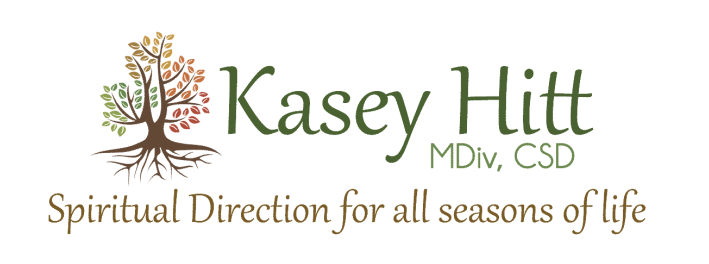
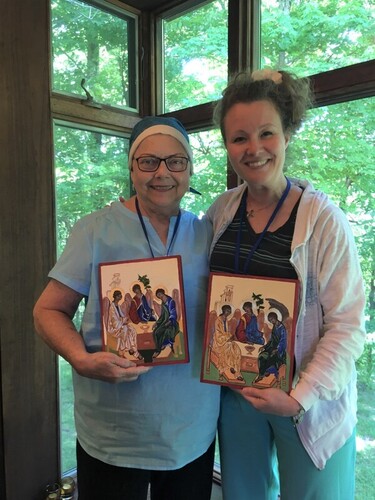
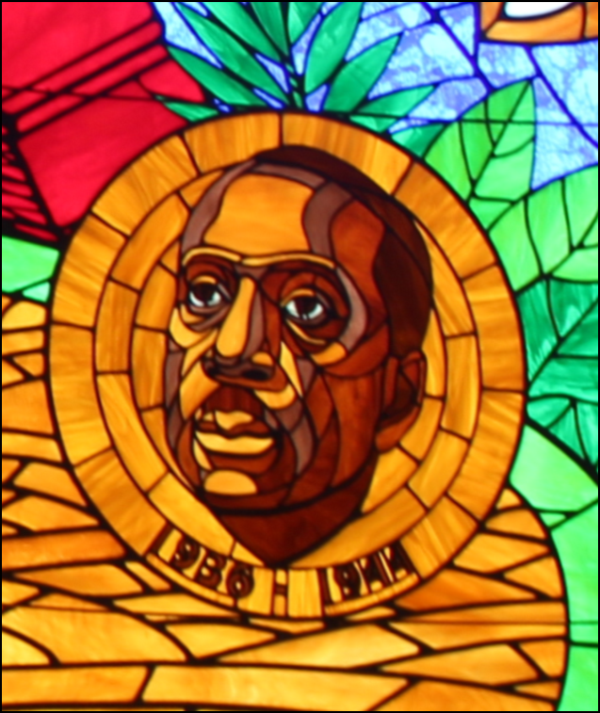
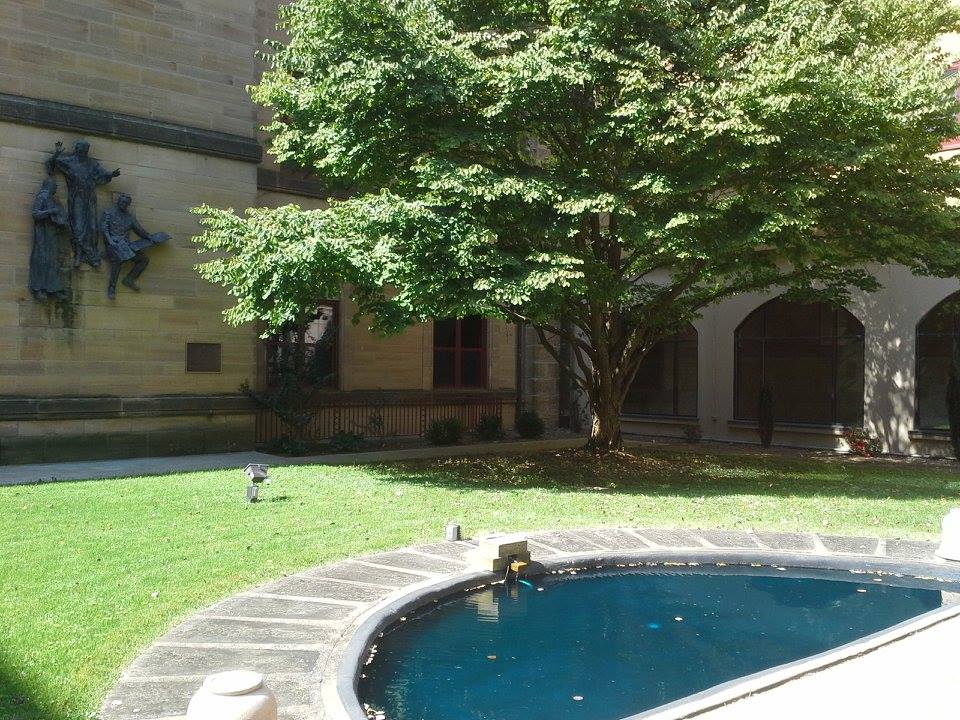
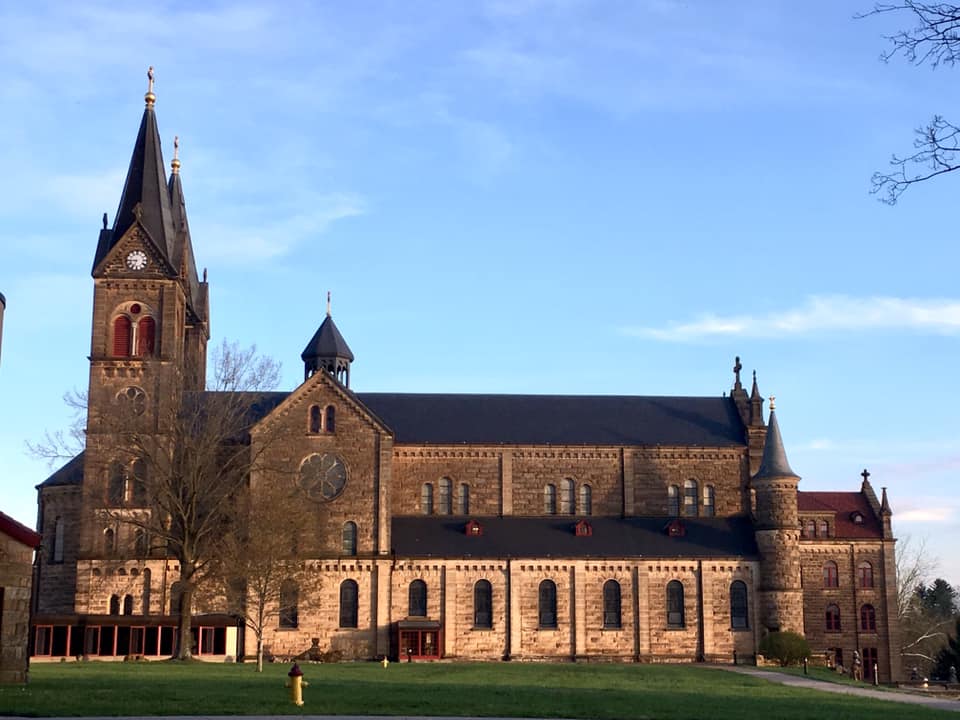
 RSS Feed
RSS Feed

